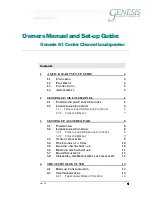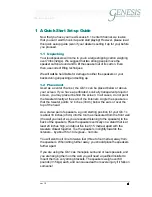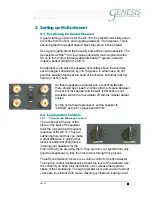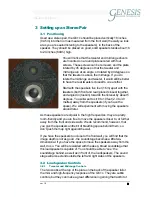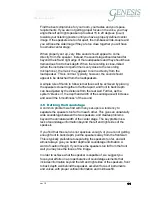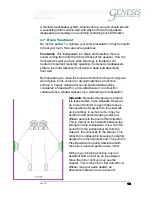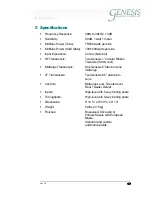
ver 1.0
11
11
11
11
~ÄëçäìíÉ=ÑáÇÉäáíó
Find the best compromise for your room, your tastes and your space
requirements. If you are not getting proper focus on the voice, you may
angle the left and right speaker up to about 15 to 20 degrees (toe-in)
towards your listening position until you have a properly defined center
image. If the speakers are too far apart, the mid-bass will de-couple and
you will lose the side image If they are too close together you will have
too small a center stage.
When properly set up, very little sound should appear to come
directly from the speaker. Instead, the sound stage should extend far
beyond the left and right edge of the loudspeakers and they should have
tremendous front to back depth. When the recording is close-miked
(when the instrument or performer is very close to the recording
microphone), the music may appear to come directly from the
loudspeaker. This is normal. Typically, however, the sound should
appear to be detached from the loudspeakers.
A simple rule of thumb to follow is that focus will be achieved by placing
the speakers closer together or farther apart, and front to back depth
can be adjusted by the distance from the rear wall. Further, as the
system “breaks in”, the depth and width of the soundspace will increase
and so will the “smoothness” of the sound.
3.6 Defining the Soundstage
A common problem we find with many set-ups is a tendency to
separate the speakers too far from each other. This gives an unnaturally
wide soundstage between
the two speakers, and creates problems
beyond the unnatural width of the center stage. The key problem is a
lack of soundstage information beyond
the left and right sides of the
speakers.
If you find that the sound is not spacious enough, or you are not getting
enough front to back depth, pull the speakers away from the front wall.
This is typically preferable to separating the speakers too far, and will
almost always give you better depth and soundstage information. A
word of caution though: If you move the speakers too far from the front
wall you may lose the focus of the image.
In order to achieve what the speaker is capable of, we suggest you
focus your efforts on a proper balance
of soundstage elements that
includes information beyond the left and right sides of the speakers, front
to back depth well behind the speaker, excellent focus of instruments
and voices, with proper vertical information and mid bass fill.

